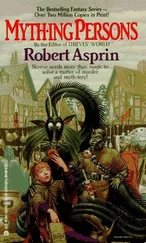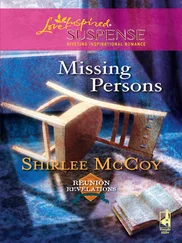In the front seat of the Buick, Larry unrolled his window all the way. Fela clucked at him-only a kerchief protected her freshly done hair. Larry gave a loud sigh, rolled the window almost closed again, leaving a sliver of space for air. Helen leaned her head against the warm glass for the short drive. She kicked the back of Larry’s seat, and Larry turned around and grabbed her ankle until she squealed.
“ Kindlech !” cried Fela.
It made her even more nervous to drive with them making noise. She slowed down more as they reached Queens Boulevard, with its milk trucks and postal wagons looming, making their own car, so substantial on their home street, seem small and weak.
“Not to fight when I drive!” she said. She used English when she wanted them to be sure to listen. The extra effort should make her children more attentive to her words. “Larry, please. Please.”
“She started it!”
“Please, mein kind , please.”
They fought terribly at home too, cramped in their little bedroom, and there was nothing for Fela to do but to get them outside, give them the opportunity to spend their energy, tire themselves out. And Fela needed an escape too. Pavel and she had fought a silent battle earlier this morning. It made her burn, his stiff face as she took out the bathing suits for the children and packed her straw bag with towels. She seemed to remember him as more flexible when the children were infants, but perhaps that was the result of her shaky memory. No, the change was real: he had become angry at her recently for fixing Friday night dinner late, her customer at the beauty salon having kept her, and she had been stunned, even awed, by his fury. Pavel did not criticize anything she did in the home, not her cooking-even the one or two times she had experimented-and not her housekeeping. The home was her domain. He respected it. But that night he had come home, face aflame from the vodka he had begun drinking at work, and shut the door hard behind him.
He had entered the kitchen with his jaw set. You are still cooking!
His voice was quiet, restrained even, but she had answered, Why do you scream so?
The Sabbath has begun! How will our children learn if their mother lights a fire on the Sabbath?
You light a fire on the Sabbath, Fela murmured, shocked. You smoke, more than I do. Mrs. Fineman was late for her manicure, and then the butcher himself was late with my chicken, what can I tell you?
She turned away from him. Why should she look at his face in this state? She had seen him in his rages before, of course she had-but not so much at her. She did not think the children had noticed. They ate, as usual, and fought, as usual. And what was there to notice? More silence from their father? Nothing so new. He concentrated on his food and on his drink. His anger seemed to have no effect on his appetite: when Helen didn’t finish her portion he scraped the remains of her meal onto his plate, Helen watching.
But now they were on their way to swim. At the red light on Thirty-seventh Avenue, Fela looked back at her daughter. Sweat formed on Helen’s brow and a tiny drop curled past her ear. Such a hot day! How could Pavel be so stubborn? When he had started going to synagogue on the Sabbath, he had actually driven! But when Fela drove the car, then it was a sin. Such a heat as this none of them had known in childhood. Did God demand that the children be deprived of a little cool water and exercise? Besides, in public places Larry and Helen seemed to behave better with each other. The arguments they had at home, Larry taunting his sister, Helen fighting back with her teeth and fists until Larry grabbed her wrists to keep her still, those fights ceased when Fela took them outside. Outside, at holiday dinners with their aunt and uncle, at school, in the park, Larry was an angel, a ten-year-old protector. It gave Fela a rest to have them there.
No, Pavel had not been so rigid when the children were tiny. She could even say that he had been happy. Happier. Now that he spent his free mornings going so much to synagogue, looking at his books, trying to concentrate on the circles within circles of words, he did not look happy. He was forty-four, and he looked angry. Worse, he looked like he was trying to keep in his anger, pressing himself down, presenting a full and serious front, the way he did when he posed for photographs, as if he were doing hard physical labor, moving the prayers and solemn songs with the bones of his body.
It had not been so with her own father, strict as he had been. There had been a little enjoyment, she thought, in all his observance. But, of course, then everyone had been pious, one didn’t think or make choices about how to spend a Friday or a Saturday, and it did not happen that a kosher butcher was late with a chicken. A family had a sense of sameness about the little events of every day. One got up in the morning, washed, dressed, and ate. On the Sabbath one worshipped instead of worked. Or at least the men did. For a woman, Sabbath was just a different form of work from the rest of the week.
Fela turned the car onto Broadway and crossed under the elevated train tracks. It gave her a little shudder to drive under the elevated, so rickety, so easy to have it fall just as one’s children were passing under it-but a moment, and it was over.
FELA LOOKED UP FROM her magazine and pushed down her sunglasses so she could see Larry and Helen more clearly. They were in the near corner of the pool, turning somersaults underwater, then coming up to gasp for air.
They had survived their swimming lessons with the lifeguard, lessons Pavel had insisted they take as he watched, fully dressed to cover up his crippled leg. Fela could not watch. But once they knew how to swim, first Larry at age seven, then Helen two years later-Fela allowed her daughter to start younger, at age five-Fela could stretch out on the slatted chair with the Ladies’ Home Journal , glancing up every two or three minutes as the two of them splashed and tickled, making up games. They had no friends at the pool, though at school, separated, the two of them got on well enough with other children. In the water they preferred to be just with each other.
They played a game she hated: rescue. Helen would dive into the water-Fela had stopped gasping when she saw her daughter’s head moving downward, disappearing-and she was good at it, very good at it, the lifeguard had assured her. Look at the shape her five-year-old body took when she curled off the child’s diving board! Fela would force herself to watch the dive-she should keep an eye on the dive in order to scream faster if something were to happen. And Helen did dive gracefully. She would stay under, emerge, wave at her brother, then pretend to cough, sink under again, slowly, her arm outstretched, only her wrist above water, then just the upper half of her palm, then her two fingers sticking up in a V. Fela would count the seconds until she saw the two fingers, because at that moment Larry would bound over from wherever he was, pretending not to see, then leap under water, lift his sister out into the air, her body light and thin, her small arms around his neck.
Fela had watched them do it many times and for reasons she could not explain even to herself, had not forbidden the game. Stop, stop! she could hear her own voice whispering inside her mind. Stop, children, stop! But if she said it aloud, then what? Larry would ask why. Helen would imitate him too. Why, Ma, why?
Because I said so, Fela imagined herself answering, the way she had once heard another mother saying at the pool. Because I am the mother. But the words would not come out naturally to her, and Larry would laugh at her falseness-better to remain silent.
Fela looked at her watch. It was almost two o’clock. She wanted to pick up from Stanley the repaired toaster, before Sunday breakfast. One errand every Saturday-a small break from the pool, a moment to herself.
Читать дальше











